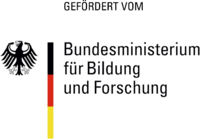Working Group G (WG G)
"Future(s) as societal Project(s)–actors and their visions in Africa and beyond”
(hosted by Subproject 3)
Visions of “Future” are related to specific life situations, discourses and historic situations within which the protagonists of those projected Futures are situated. By “projected futures” we want to express four connotations: First, Futures are always projections of imagined situations based on a (individual or collective) past and experiences of the present. Second, these Future projections are always imagined by particular persons or groups of actors. Third, these Futures are not just abstract considerations but they contain and are based upon normative preferences. Fourth, Future visions include a particular individual or societal project to be realized in that future. This project may be guided by a positive vision for the future based on ideas of a good life, or a good society. Or the Future vision represents a dystopian understanding of the future and the implied project aims at preventing the imagined disaster.
Future visions are the products of certain actors embedded in specific social, economic and historical conditions from which they emerge and within which they are formulated. The Working Group shall focus on those particular actors and their situatedness. Of course, actors can be collectives (such as social movements, parties or religious groups) as well as individuals (activists, intellectuals, politicians, professionals or youths, to mention only a few). Referring to Tamara Hareven´s concept of distinguishing individual, family and societal time, we are concerned with individual, family and societal futures, and their entanglements in the perspective of concrete actors.
Against this background we ask:
- Who are the actors that express visions of the future?
- Whom do they claim to represent: e.g. themselves as a particular group, the “nation”, race, gender, generation etc?
- What is their take on a good life, or their understanding of a good society?
- What elements of life or of a good society are prioritized in their vision, e.g. economic, social, cultural (often linked with moral norms), ecological?
- In what format are the visions presented (prognoses, political programs, prophecies, fictional writing, art works or just in everyday practice, etc.)?
- What kind of action do they propose? Do they act?
- How do the perceptions of the international and global developments affect the visions of the future?”
A series of Thursday Sessions shall bring together the results of all Sub-projects in the Bayreuth Academy with the Workgroup’s on actors and the societal embeddedness of their visions of ‘future’. The topics for the session will be developed in cooperation with the Sub-projects. Following points might be considered:
For instance, the history of changing visions of the Future is closely interwoven with the respective society and the most relevant protagonists of visions of the future. This implies certain ideas about how to live in the future in contrast to current life worlds. Besides, visions about nature (and culture) and the practices related to nature have been formulated by certain protagonists and from the specific background of a society. Diasporas are societal spaces with a strong influence on Future visions that reach beyond national or even regional frames, more than ever in the era of the World Wide Web. Yet, diasporas consist of individuals with different ideas of their lives and their futures – e.g. when it comes to the relation with their society of residence or the society of their origin, respectively. When talking about (the ideas and images of) revolutions the importance of actors is evident. They are embedded in specific power relations, distinctions of social class, gender relations and discourses. These contexts are connected to certain cultural surroundings which produce different iconographies and corresponding ideas of the future.
As part of this Working Group, there will be an international conference “Actors and their Futures”. It focuses on the topic of “Future as social project(s)”, either seen as collective or individual projects (Lebensentwürfe). This international conference follows closely the overall concept of the working group and is open to all members of the academy and its guests.



